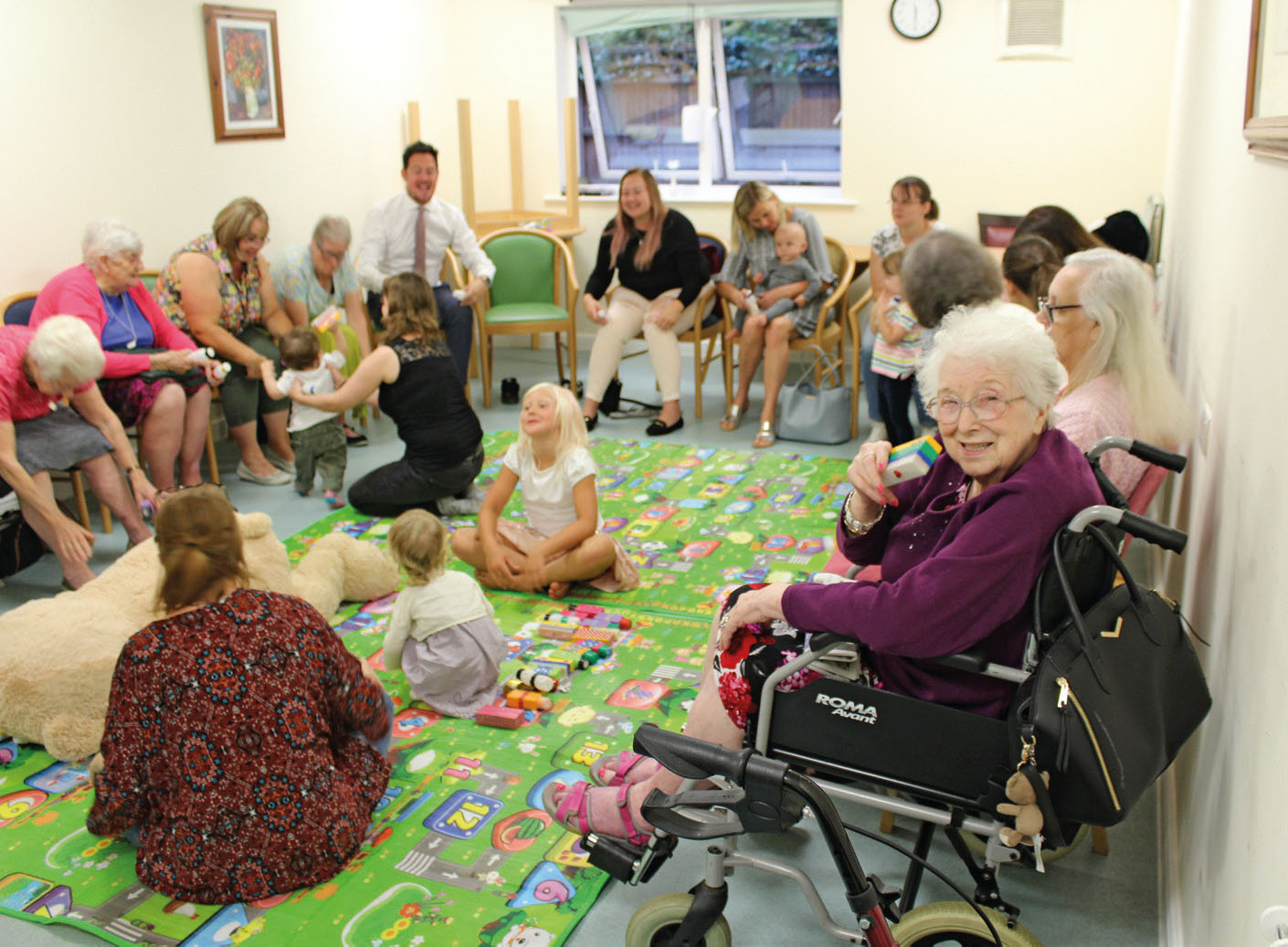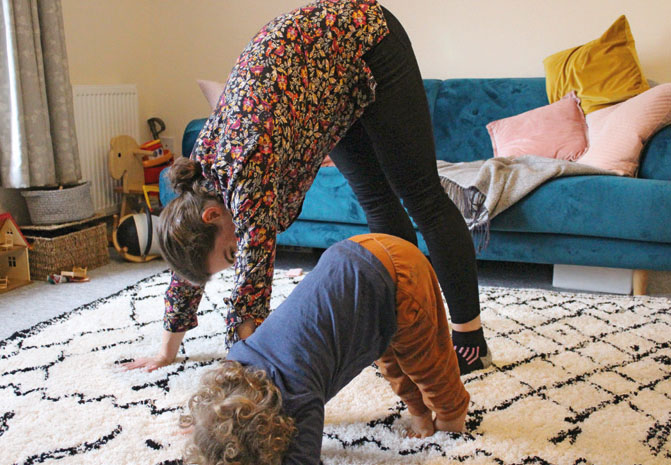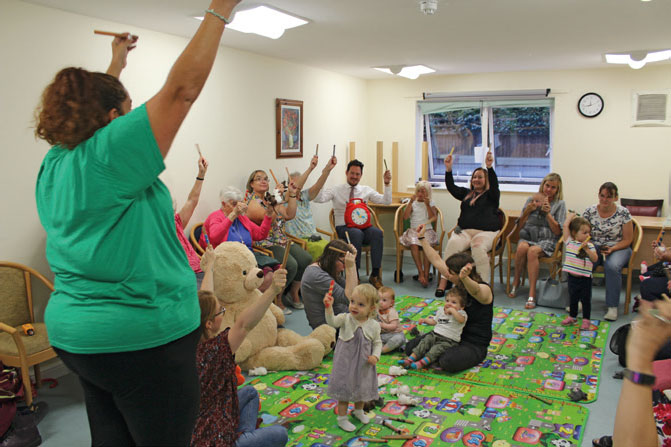
Wherever in the world, and for whatever reason you engage in it, music brings people together. At Boogie Mites, we see that Early Years (EY) providers have a wonderful opportunity to support community cohesion through music, and that freelance EY music teachers can support providers to fulfil this role.
There is a gap in music knowledge, confidence and resources generally across the EY workforce. Most EY programmes of study do not specifically cover working musically with young children, and additional music training opportunities can be perceived as difficult to access, too costly, or too time-consuming to implement in settings. In addition, music in early childhood is not included in the current National Plan for Music Education, and music hubs are only funded to work with children and young people aged 5 to 18. It is difficult to know where EY music fits.
Combined with this unsure strategic positioning within the wider EY education and music education sectors, perceived lack of skills from teachers and EY professionals themselves, can often mean music being underutilised. In 2010, Gillian Stunell found that ‘a number of generalist teachers seemed to believe that they were not competent to teach music to their classes, since they perceived themselves as ‘non-musicians’ or ‘not musical’.1 A recent study of reception teachers also found that even if they had a strong personal musical identity, this did not necessarily translate into positive professional confidence when it came to teaching music.2
This is where freelance music teachers who have EY training and follow tested EY music programmes can really make a difference. Through working in EY settings on a regular basis, freelance practitioners can influence how the value of music-making in early childhood is perceived and extend that value beyond the classroom. Indeed, this is what attracted me, a freelance community musician, to Boogie Mites. It focuses on sharing the knowledge, resources and confidence with practitioners and parents through training and classes that follow tried and tested EY music programmes, not just provision of child-focussed sessions.
By upskilling and equipping the EY workforce to deliver daily, creative music-making opportunities we not only support the development of the children in their care, but we also empower them to impact community cohesion through music.
Through parents, grandparents, local events and partnerships, the EY sector has the opportunity to share the fun, uplifting experience of shared music-making and its benefits for children's development, community cohesion and communication. It can support parents’ workshops and intergenerational sessions, as well as local events and partnerships.
Therefore, the wider community could actually be the place that EY music sits more readily, led by freelance music practitioners and supported by the EY and music education sectors.

Music has the potential to unify, no matter your age
Parent music workshops

Musical play at home has a number of benefits
EY settings can offer parent workshops to share the benefits of music-making, encourage home practice, and also to provide an opportunity for parents to meet and make connections with other local parents, through the bonding experience of musical activities.
Recent research in the British Journal of Psychiatry suggested that ‘singing could help mothers recover from post-natal depression more quickly’.3 In the study, three groups took part in different activities in order to monitor changes to their mental health. The singing workshops saw mothers learning lullabies and songs from around the world with their babies, even creating new songs together about motherhood. ‘Those with moderate to severe symptoms of post-natal depression (PND) reported a much faster improvement than mothers in the other groups.’ All groups improved over the ten-week period, but in the just the first week, the singing group reported a 35% decrease in depressive symptoms.4
Boogie Mites tutors run courses for NHS-referred mothers experiencing PND and parents experiencing isolation or other issues that can make early parenthood a struggle. We see first-hand just how music can be the shared activity that breaks down barriers for these groups. Classes such as these offer a support network and a safe haven to share worries, ask advice and build relationships with like-minded people. Often, lasting friendships are made through attending these groups, and feedback from parents suggests they value the opportunity to connect with their babies and other parents through music.
Chichester University research findings
Boogie Mites commissioned ‘An Evaluation of the Boogie Mites EY Music Education Programmes in respect of Parents and Practitioners’, which was published in December 2013. The parent study evaluated outcomes for parents attending Hampshire County Council-funded parent education courses for targeted families in disadvantaged areas. It found not only developments in their own confidence and knowledge, but also that parents perceived the following developments in their children as a direct result of participation in the programme:
- Participants firmly agreed that since attending the programmes, they had noticed how their children had become more confident.
- They found that their children were able to follow instructions and were responding to music.
- Some pointed out that their child seemed not only to have greater confidence when singing, but through other forms of self-expression and interactions in group situations.
- On the whole, 269 of the 296 participants found some or a lot of changes in their child's personal, social and emotional development.
These results are a consequence of not only the programme but also the way in which the music was enjoyed – together. Social interactions were improved through the music and movement sessions which allowed this to be done in a relaxed, inclusive setting – one in which everyone could thrive. Sharing this togetherness – the catalyst for the social skills mentioned – saw their confidence, speech and interactions all improve as a result of this shared adventure.
Home Practice
As well as the social benefits for everyone taking part in parent workshops, it is also an opportunity for EY settings or freelancers running groups to promote home practice. We know that ‘when parents involve themselves in the education process of their children, usually the outcome can be qualified as a positive and encouraging one’ and that there are a number of influences on the education of the child, including the parent, the child themselves and the wider social environment.5,6
With this is mind, EY settings and freelancers play an important role in encouraging parents to take an active part in supporting their child's education and development. Through its parent workshops and Family Learning courses, Boogie Mites provides ideas and resources for parents to weave music into their busy lives and also explains how they can relate to the EY Foundation Stage curriculum. This can support parenting and start good habits of home practise that continue throughout the school years.
At Boogie Mites we always say that for the greatest impact, you need ‘repetition, repetition, repetition,’ so the added home practice of music-making can give an extra boost to all of the skills that can be developed through music.
Intergenerational music sessions

An intergenerational music session
Studies on music have found that participating ‘could revolutionise dementia care’.7 It can ‘improve self-esteem and encourage memory recall, give a chance to reminisce, aid relaxation and reduce loneliness, anger and sadness.’8
Indeed, Nicole Heard, who runs Boogie Mites intergenerational music sessions in care homes and day centres across Portsmouth, has witnessed these benefits first-hand. We look forward to evaluating these sessions early next year and producing a guide to intergenerational music-making for EY practitioners.
You may have seen ‘Old People's Home For Four-Year-Olds’ on Channel 4 – its second series has just been released. The first season measured the impact that these encounters had on the older residents. This time, the effect on the children has also been measured. The benefits observed are wonderful to see. A significant aspect noticed is that elderly adults have undivided attention for the children during their time together, something that the children's other significant adults rarely have. They are able to live in and enjoy the moment rather than always thinking about other jobs that must be done – a mindset that they share with the children.
The Legacy Project is a research, learning, and social innovation group that works across generations. On its website, it has identified the benefits that these sessions have on the children involved:
- Through sharing an older adult's interests, skills, and hobbies, children are introduced to new activities and ideas.
- By getting to know ‘real, live, old people’ children look beyond the ageist stereotypes.
- Children are also encouraged to look toward the whole of their lives. They have many models for adulthood, but far fewer for older adulthood.
- Children develop higher self-esteem, better emotional and social skills.9
The sessions support cross-curricular development in the EY Foundation Stage (EYFS) statutory framework:
- Communication and language – through conversations with adults whose vocabulary differs greatly to their own, and even to their parents/carers.
- Physical development – for both the child and the adult. Music makes you want to move!
- Personal, social and emotional development–through building friendships and developing an understanding of each other. Building self-confidence and readying the little ones with scenarios they will find themselves in at school.
- Understanding of the world – elderly residents may have stories to tell. Communication with them keeps history alive and the children are learning from someone who's experienced them first-hand. For example, flying on a plane 50 years ago, or their favourite show on their black-and-white TV. Little ones may also help the elderly understand the modern world, what with their familiarity with new technologies.
- Expressive arts and design, literacy and mathematics – all easily accomplished during these interactions. Choosing the task is the only hurdle. Singing counting and spelling songs, dancing, and creating shapes with their bodies are just a few suggestions.
EY music-making is very much at the centre of the wider community in intergenerational contexts, once again being led by freelance practitioners. By bringing together not only EY settings but also older people's organisations and care homes, it places music at the centre of the whole community and provides an uplifting, therapeutic and life-enhancing space for all ages.
Local events and partnerships
Schools fêtes, library events, community centre groups and the like can all be enhanced by the inclusion of EY music-making sessions.
Supporting national fundraising events such as 100 Million Minutes also contributes to this cohesion. The 100 Million minute goal is set yearly by the non-profit organisation Achievement for All, during which all registered groups collectively aim to reach the 100 Million Minute target. The aim is to encourage more children to read. EY settings, schools, colleges, parents, carers, childminders or other community groups were all invited to take part in Boogie Mites’ recent contribution cause. We saw a collection of toddlers, parents and grandparents taking part, and even a local MP attended. It was great opportunity for the community to gather and enjoy the benefits of active music-making in support of a worthy national fundraising cause.
iCan is an organisation of experts in speech and language. Its annual Chatterbox Challenge ran for many years ‘to raise awareness around the importance of good speech, language and communication for all children.’10 Boogie Mites provided music resources to support this campaign and, along with many other organisations and EY settings, we held events that encouraged local community involvement. We witnessed the positivity of community shared interest – giving children the best possible advantage and coming together to do so – through music.
To conclude
EY active music-making is a powerful tool that not only supports child development but also offers so much more – uplifting and bonding groups of children, families and local communities.
The EY workforce needs ongoing support from EY music leaders to give them the knowledge, skills, confidence and resources to realise the potential part they can play at the centre of the community; bringing people together through music.
If you are interested in finding out about Boogie Mites Freelance Licenses, visit our website and request a prospectus.
References
2 Music Identity, teacher confidence and teacher education: Findings and discussion from a mixed methods study of music learning and development in the school reception class in England. tinyurl.com/mt2-ey02
4 Ibid.
5 Ceka, A. & Murati, R. 2016. The Role of Parents in the Education of Children. tinyurl.com/mt2-eyrole
6 Ibid.
10 tinyurl.com/mt2-ican




